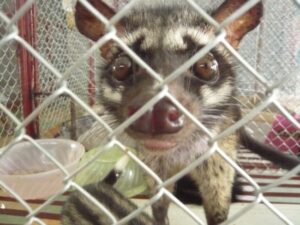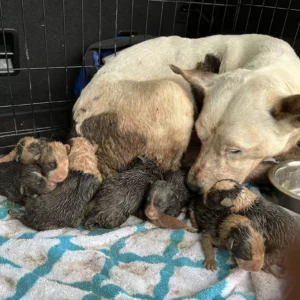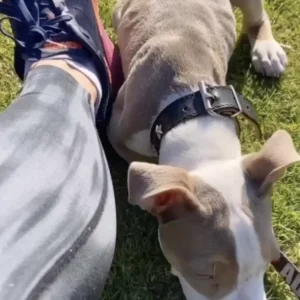When Maya, a Maryland wildlife volunteer, decided to adopt a small fox rescued from an illegal fur breeding facility, she thought she was simply giving an animal a home. But what she didn’t expect was the emotional wave that would follow.

The fox, later named “Koda,” had spent most of his life in confinement — small cages, no sunlight, and no human kindness. When Maya first opened the cage to take him home, Koda didn’t run away. He just sat still, his golden eyes wide and trembling. But as she wrapped him in a soft blanket and whispered, “You’re safe now,” something extraordinary happened.
Tears welled up in the fox’s eyes.
At first, Maya thought it was a trick of the light. But the trembling in his tiny frame, the low whimper, the way he buried his face into her arms—it was all too human. And heartbreaking.
For days, Koda barely moved. He refused food and avoided eye contact. But Maya didn’t push. She stayed by his side, reading to him softly, playing calming music, and placing his food gently by his side. Slowly, the silence began to lift.

On the sixth night, Koda approached her. He placed his paw on her lap, looked into her eyes, and let out a soft chirp—the first sound he’d made since coming home.
That small gesture changed everything.
Maya documented his journey online. Her videos went viral—not because Koda did tricks, but because people around the world were moved by his fragile spirit and brave recovery.
Over time, Koda blossomed. He chased leaves, stole socks, and even curled up on Maya’s lap during movie nights. But what touched Maya most was how he greeted her every morning—tail wagging, eyes bright, always placing his paw on her leg, like a quiet “thank you.”
Experts say foxes aren’t capable of tears like humans. But for Maya and millions who watched Koda’s story, it didn’t matter. What they saw was raw emotion, a soul grateful to finally be loved.






